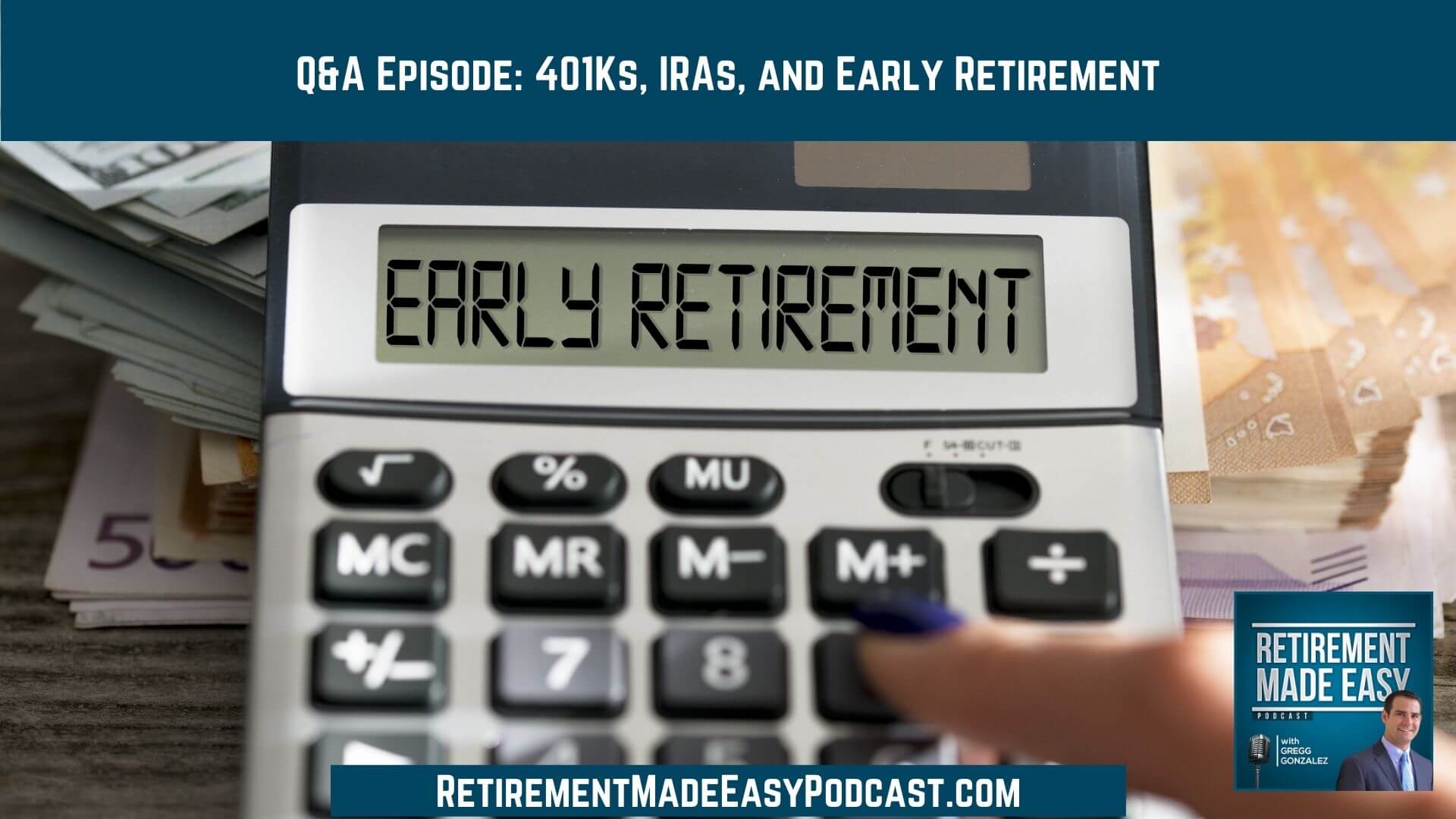
If you roll over your old 401k from a former employer, does your match apply? Can you get around the 10% early withdrawal penalty? If you retire early, should you defer your social security benefits? I answer these questions—and more—in this Q&A edition of the Retirement Made Easy podcast!
You will want to hear this episode if you are interested in…
- [4:18] 401k rollovers, matching, and vesting schedules
- [8:10] Can you get around the 10% early withdrawal penalty?
- [11:52] Does the 10% early withdrawal penalty apply to beneficiary IRAs?
- [16:14] When to claim social security if you’re retiring early
401k rollovers, matching, and vesting schedules
If you roll over your old 401k from a former employer, does your match apply? Let’s say Jennifer has $1 million in a former 401k and rolls it over to her new 401k that offers a 5% match. She was told she’d get the $50,000 match on the amount rolled over. Unfortunately, the match does not apply to rollover money, only current contributions from your paycheck while working for the new company. When Jennifer earns $100,000 at the new company, they’d match $5,000.
The most common vesting schedule is 20% per year over five years. A typical matching schedule will be 20% the first year, 40% the second year, 60% the third year, until they match 100% in the 5th year. So if you leave the job in year two, you’d only be able to keep 20% of what was matched. This is in place to incentivize people to stay with their company long-term.
Can you get around the 10% early withdrawal penalty?
If you withdraw money from an IRA or 401k before you turn 59 ½, you can get hit with a 10% penalty. If you’re 58 and want to retire early, the only way to do it without the penalty is if you have a special exception such as a disability or medical expenses. The other exception is called a 72-T. It forces you to draw out equal amounts over 5 years or until you turn 59 1/2.
However, there is more flexibility with a 401k. If you retire between 55 and 59 ½, your 401k—if left with the company you retire from—can be accessed without the 10% penalty. You’ll just pay state and federal taxes. This can’t apply to an old 401k with a different company that you didn’t retire from after the age of 55.
Does the 10% early withdrawal penalty apply to beneficiary IRAs? Listen to find out!
When to claim social security if you’re retiring early
This listener’s husband is retiring at age 64 and wants to collect his social security benefit immediately. The wife’s benefit is greater than ½ of his benefit at full retirement age. She plans to wait until full retirement age to collect her benefit. Is this what they should do? With the minimal information I have, I’d start with some questions. If you delay your benefits, where is income going to come from? A pension? A 401k, Roth IRA, or traditional IRA?
If one of you predeceases the other, the higher benefit continues. If your husband has the higher of the two benefits, it makes sense to collect the lower benefit first so the larger benefit defers and increases every year.
Secondly, men are typically older in a marriage and often pass away sooner. If women live 3–5 years longer than men, the husband should think about leaving resources for their spouse. So it makes sense to delay your husband’s benefit. But again, with more information, I can give a more accurate answer.
Resources Mentioned
Connect With Gregg Gonzalez
- Email at: Gregg@RetireSTL.com
- Podcast: https://RetirementMadeEasyPodcast.com
- Website: https://StLouisFinancialAdvisor.com
- Follow Gregg on LinkedIn
- Follow Gregg on Facebook
- Follow Gregg on YouTube



